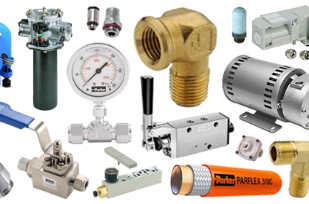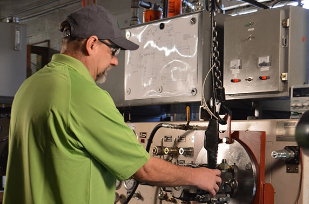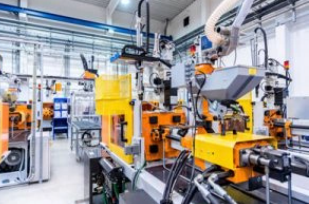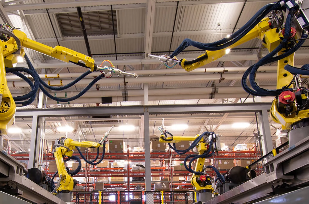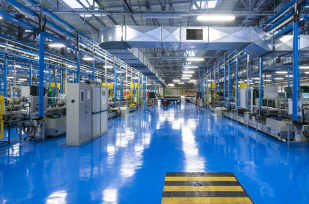
Dentistry is an art, and that art relies on a skilled and knowledgeable dentist—and his or her equipment. Oil-less air compressors are one of the single-most critical pieces of equipment a dentist will use in their practice. This is because they’re the one and only component that powers all of the tools needed to check, clean, and repair patients’ teeth.
One of the most important things about oil-less compressors in dentistry is the cleanliness of their air quality. The last thing you want as a dentist or a patient is a surgical-type room filled with contaminated air. That’s why it’s not only crucial to use an oil-less compressor in your practice but to also select one from a reputable manufacturer.
In this article, we’re going to tell you everything you need to know about oil-less compressors and the important role they play in dentistry. We’re also going to talk about the general benefits of these types of compressors and why Jun-Air supplies the best oil-less compressors on the market.
Read on to learn more.
What Exactly Is Oil-Less Compressed Air?
With a traditional air compressor, the air is produced via a turning piston within the compression chamber. The chamber is where the difference in compressors lies—among a few other things, but we’ll get to those things later. The piston in the compression chamber depends on lubrication to move efficiently and to keep from creating unnecessary friction which would cause overheating.
Oil-less compressors, on the other hand, don’t need oil. This is because the cylinders in oil-less compressors are pre-lubricated. They’re also coated in Teflon to lock in the lubrication so that they remain lubricated and protected—without leaking any moisture into the compressed air.
Oil-less compressors also work slightly differently than regular air compressors. Oil-less compressors take in air through what is called an unloader valve. The outside air moves through the unloader valve first, and then an air filter to remove any dust, debris, and other particles. This not only cleans the air but protects the compressor from potential damage.
Once the air passes through the filter, the unloader valve opens, allowing the compressor pump to push air into the chamber. Once a certain amount of air fills the chamber, the valve closes and the compressor begins to run. Unlike traditional air compressors, once an oil-less compressor is running it stops taking in air.
Therefore, the primary differences between traditional and oil-less compressors are the air quality plus the amount of maintenance and internal parts.
Oil-Less Compressors and Dentistry
When we think of dentist offices or any medical office for that matter, we think of cleanliness and sterile equipment. Of course, optimal hygiene is a requirement in dentistry, which is why oil-less compressors are so important to dental practices everywhere—because compressed air for dentists must be 100% pathogen and bacteria-free.
Oil-less compressors are exceptionally hygienic. They’re also strictly regulated by the Occupation of Safety and Health Administration (OSHA) as well as the Food and Drug Administration (FDA) under the United States Department of Labor. Under these regulations, no materials used in the machinery, i.e., oil, dust, debris, are allowed to seep into the outward airflow of the compressor.
This is to ensure that no contaminants, including oil-containing molecules, can affect the patient and cause infection or illness of any kind. Oil-less compressors provide the most hygienic application in dentistry since the Teflon coating locks in the oil completely and the air filter catches any contaminants before they reach the compression chamber.
Additionally, oil-less compressors rely on the proper filtering. Without the proper filtering, oil and debris can end up in the air supply and end up being ingested by the patient. This is a common pain point for dentists looking for oil-less compressors for their practice because one low-quality filter can lead to legal repercussions as well as a loss in regular clientele.
The Benefits of Oil-less Compressors?
Ultimately, oil-less compressors are really the only air compression solution for dental equipment. With traditional air compressors, there’s a much larger risk of contamination within a confined space—which is also why traditional air compressors are for more industrial purposes such as pipeline construction, and so on.
Of course, other than hygienic reasons, oil-less compressors also come with a range of other benefits.
They’re the Most Hygienic Application
As we’ve mentioned, multiple times, hygiene is of the utmost importance in dentistry. Therefore, it bears repeating. When it comes to a confined surgical or medical operating space, air quality is king. The cleaner the air, the safer your patients.
After all, some of the most harmful bacteria and pathogens exist in saliva. The last thing you want is a poorly-operating air compressor mixing contaminants from the air with any bacteria within a patient’s mouth—especially if you’re performing oral surgery.
An oil-less air compressor with the proper filtration will help you maintain the air quality while you take care of your patients.
Their Noise Levels Are Minimal
Dental equipment is intimidating enough, which is why it should be seen and not heard. Oil-less compressors are technically known for their louder-than-usual compression cycles. However, most of the oil-less compressors used in dental practices are significantly smaller and compact, which means it’s easier to fit them with silencers.
Some oil-less compressors come standard with silencers, but for the ones that do not, the add-on feature is easy to come by. Either way, the noise level is minimal, which is a plus considering most patients are apprehensive about the sound of drilling into bone. They don’t need to hear the machine that’s powering the drill on top of it.
Additionally, most silencers come with their own warranty, which means the manufacturer or dealer you order the part from will ensure that it’s properly installed and maintained.
They Come in Several Shapes and Sizes
Oil-less compressors need fewer parts to operate, which means they weigh less than traditional air compressors. To put things in a better perspective, traditional air compressors can weigh hundreds of pounds while oil-less compressors only weigh up to 20 pounds or so.
Most importantly, the compressors for dentists are typically designed to be compact, so they’ll fit neatly where they’re supposed to and they’ll be easy to move around as needed. In general, the size of your dental practice and dental equipment you’re using will determine the size of the compressor you need, and there’s an oil-less compressor out there for all size dental practices.
They Require Less Maintenance
Arguably one of the best things about oil-less compressors is that they require much less maintenance compared to traditional air compressors. Traditional air compressors require frequent oil changes, and that frequency depends on the compressor’s design and its use. Plus, when you change the oil you have to dispose of it, which costs money—especially if you’ve hired a service to take care of the maintenance for you.
Additionally, traditional oil compressors require air and oil separating elements, which are usually in the form of specialized filtration systems that are capable of removing oil aerosols. These parts also require frequent maintenance, usually in the form of a replacement, which means you’ll end up spending more money over time.
With oil-less compressors, the only thing you have to worry about is making sure you drain the compression tank after each use. The compression tank tends to hold onto the water vapor that condenses inside. As long as you keep up this, your compressor will last for years to come—it’s that simple.
They’re More Environmentally Friendly
Utilizing an oil-less air compressor means the compressor won’t release any contaminants or oil aerosols into the air. This isn’t just safe for your dental operating room, but also for the outside environment. This is precisely what makes oil-less compressors environmentally friendly as well as medically safe.
These days, it’s essential to be as environmentally friendly as possible, which is something that industrial equipment usually isn’t—except for oil-less compressors!
Jun-Air Is Every Dentist’s Oil-Less Solution
Oil-less compressors come with a host of benefits for dental practices as well as other medical and food-related industries. In fact, they’re a standard requirement within these practices, which means you won’t be able to run your organization without them.
Of course, not all oil-less compressors are created equally, which is why you should only purchase yours from a reputable company like Jun-Air. Jun-Air is the leading manufacturer of quiet, oil-less compressors, serving more than 100 countries around the world.
We specialize in the retail of industrial equipment such as oil-less compressors from only the best. Contact us today to learn more about our inventory and how we can help you find the right equipment for your practice.

